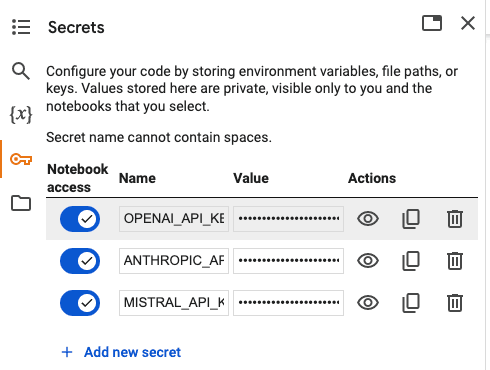Google Colab Example
It is possible to use ProxAI in Google Colab.
It is recommended to directly follow the instructions from following colabs instead of this documentation page. 🏃♂️➡️ 🏃♂️➡️: Good for cold starts 🚀 🚀: Good after spending some time with ProxAI

